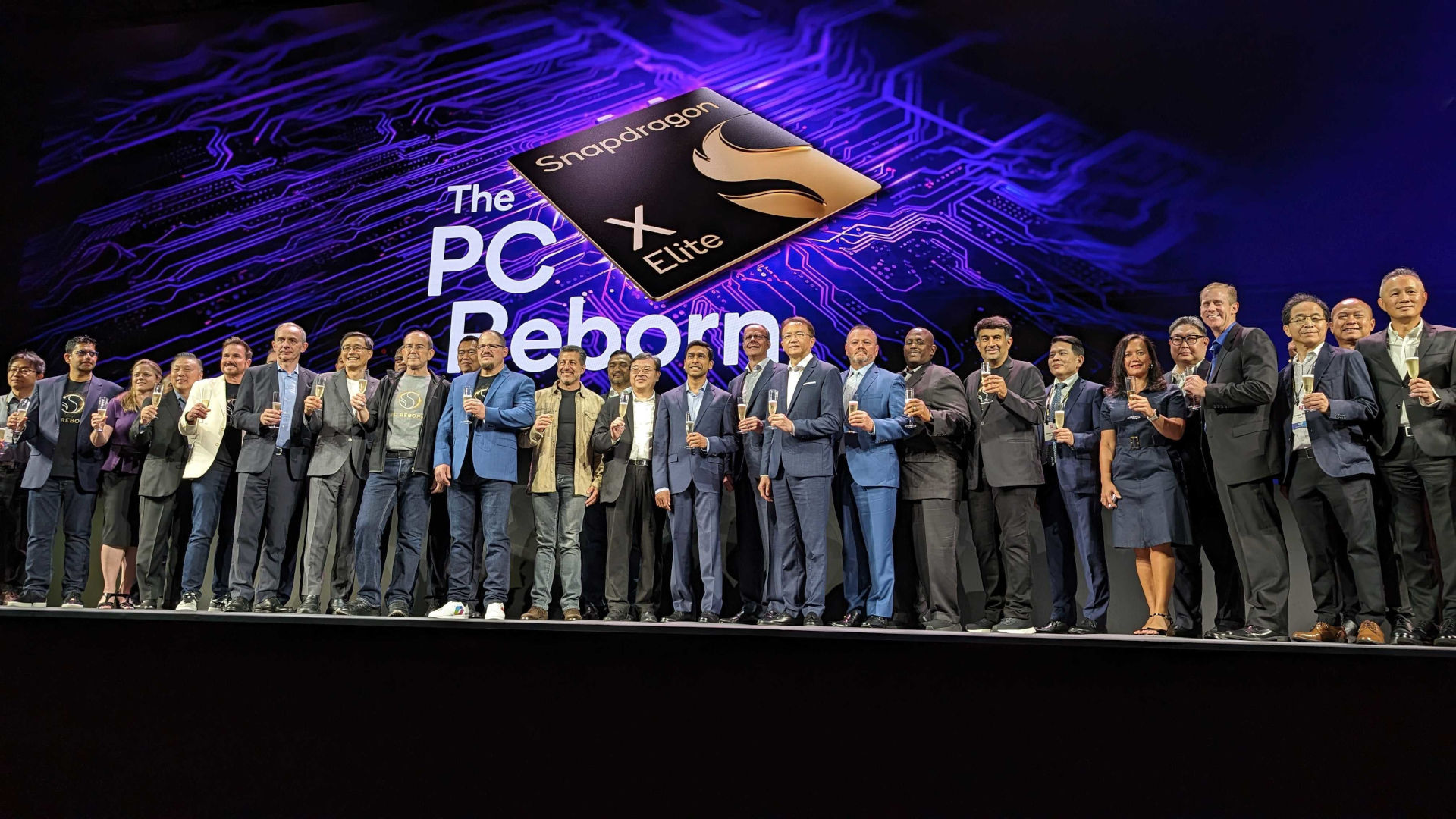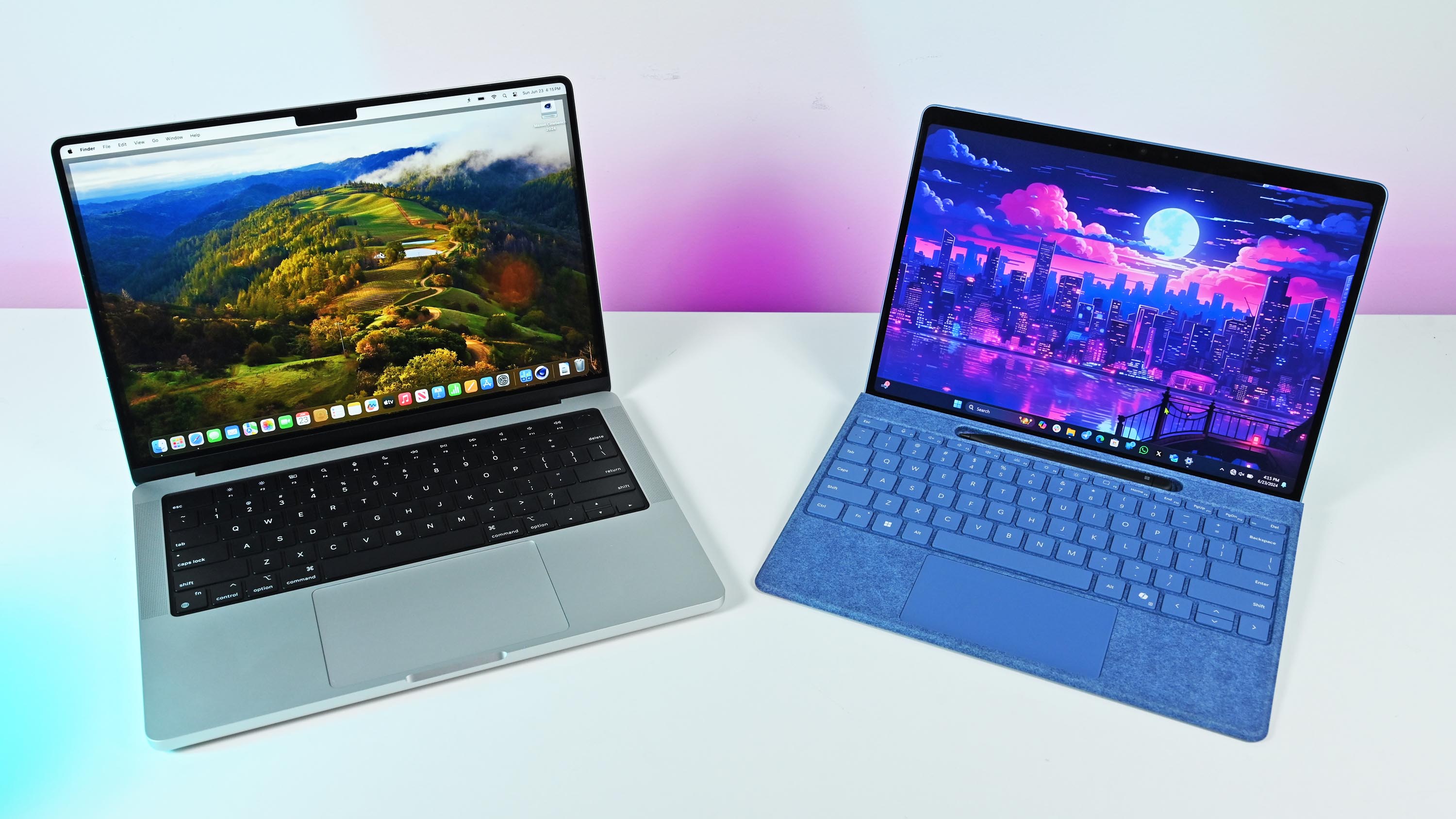
The fate of Qualcomm’s new Snapdragon X processors got some good news tonight, as a jury found that the company properly licensed its chips from Arm Holdings, according to Reuters. Although the actual court case resulted in a mistrial, this fight between Arm and Qualcomm may not be over yet.
Because of today's result, the case could go to trial again (only the parts that pertain to Nuvia could go to trial again, but not the rulings in favor of Qualcomm; seeing as Nuvia no longer exists a retrial appears to be a moot point at this time). However, Judge Maryellen Noreika, who presided over the case in the U.S. federal court in Delaware, had a better suggestion for both companies: Work it out in mediation. Noreika made this assertion under the belief that if the case went to trial again, there would be, once again, no clear victory.
From Reuters reporting on the verdict:
After more than nine hours of deliberations over two days, the eight-person jury in U.S. federal court could not reach a unanimous verdict on whether Nuvia, a startup that Qualcomm purchased for $1.4 billion in 2021, breached the terms of its license with Arm. But the jury found that Qualcomm did not breach Nuvia's license with Arm. The jury also found that Qualcomm's chips created using Nuvia technology, which have been central to Qualcomm's push into the personal computer market, are properly licensed under its own agreement with Arm, clearing the way for Qualcomm to continue selling them.
Just earlier today, we reported that Qualcomm expected to save up to $1.4 billion by reducing its reliance on Arm. Those numbers are in question, but today's verdict favors Qualcomm CEO Christiano Amon's bet on buying Nuvia in 2021.
Nuvia was started by ex-Apple and ex-Arm employees who originally sought to design all-new Arm-based chips for servers. However, Qualcomm swooped in with $1.4 billion to change their mind (and direction), instead making high-end processors for Windows PCs that could compete against Apple.
During the trial, Qualcomm claimed that 1% or less of its Oryon CPU core designs are based on Armv8 technology.
We also learned that only 720,000 PCs with Qualcomm chips were sold in Q3 2024, which appeared to be purely negative news. Qualcomm aims to capture 50% of the market within five years, but holding just a 0.8% share of sales in Q3 2024 is a weak beginning. Reportedly, Qualcomm chips power only 1.5% of all Windows PCs.
Following the verdict, Arm Holdings is down 1.75%, and Qualcomm is up 2% and climbing in after-hours trading.
The fate of Snapdragon X (Nuvia cores) was on the table

Had Qualcomm been found liable for not properly licensing the tech from Arm, it could have been forced to cease selling its Snapdragon X processors, resulting in companies like ASUS, Acer, Microsoft, Dell, HP, and Lenovo pulling their products from their shelves. Moreover, it couldn’t release further iterations of the chip, whether scaled up or down, for future products.
Now that the jury found Qualcomm innocent, Arm loses much bargaining power in hopes of reaching a big financial payout from Qualcomm.
Of course, Arm could appeal and ask for a new trial, kicking the whole escapade down the road into 2025, but it seems more likely that the companies will come to a mediated agreement in which Arm gets more money, and Qualcomm gets a promise of no more lawsuits.
Interestingly, Qualcomm is expected to kick off Gen 2 of its Snapdragon X processors in mid-2025, although that chip is expected to deviate even further from Arm’s designs, making Arm’s case even weaker.
As I wrote in May 2024, right when the Snapdragon X Elite and Snapdragon X Plus processors were launching, ARM64 and AI are driving a 'Great Reset' in the Windows PC industry, a transformation unlike any witnessed in the past three decades. That is still the case going into 2025 when I expect even more shakeups from the top Windows OEMs.
Windows laptop makers don’t seem too concerned with Arm and Qualcomm's ongoing rivalry. Over 20 laptops launched with Qualcomm’s new processors in 2024, and Windows Central expects to hear of even more Qualcomm-based PCs at CES 2025 in early January in Las Vegas.







